
views
- Plan how often you want to meet up with and chat with your casual partner. Limiting your hangouts and chats may help things stay casual.
- Avoid romantic activities and prioritize fun hangouts instead. This makes it easier to hold onto the boundaries of your relationship.
- Stay tuned into how you're feeling throughout the relationship. Even if it starts as a casual fling, your emotions might change over time.
Find someone who wants to be in a casual relationship.

If you have a friend or acquaintance who you are comfortable with, consider approaching that person. Tell this potential partner that you aren’t looking for anything serious, but you would like to spend some time with them one-on-one. Be respectful and understanding if this person declines. There are numerous dating websites and apps that can help you find someone who is on the same page as you are. Be yourself on these websites, and be honest about what you are looking for. Always stay safe and let a friend know if and when you meet a potential partner for the first time.
Be honest.
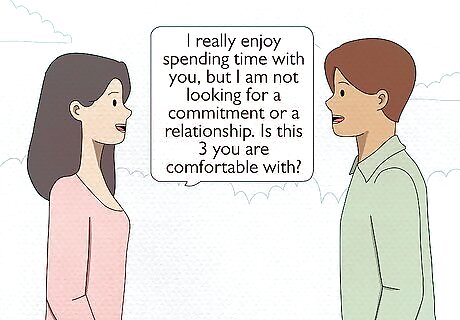
Communication is the key to success in any relationship. Casual relationships are no exception! It is important to be upfront and honest about what each of you are looking for in a causal relationship. If you want companionship, intimacy, or simply someone to go to a museum or a movie with you, let your potential partner know. Encourage your partner to communicate their wants, needs, and expectations with you, and promise to continue the open line of communication. Say to your partner, “I really enjoy spending time with you, but I am not looking for a commitment or a relationship. Is this something you are comfortable with?” Reader Poll: We asked 328 wikiHow readers to tell us the best way to set boundaries in a casual relationship, and 67% agreed that honest, open communication are key to maintaining a healthy, fun dynamic. [Take Poll]
Plan how often to see one another.
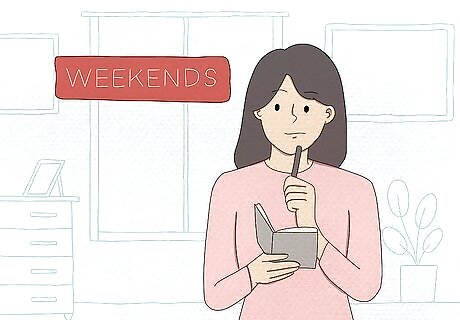
Decide on the parameters of the casual relationship. Perhaps you will only see each other a few nights a month, or maybe you will plan to have dinner only on the weekends. Limit your time spent together so that it does not begin to feel like a committed relationship. Discuss your options and what you both are comfortable with.
Discuss how to stay in touch.
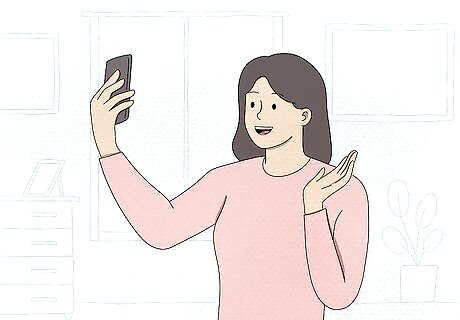
It is important to be upfront about which method works best for the two of you. It's also important to discuss how often you should be in contact. Constant communication could increase your emotional investment, so be sure to keep to the communication boundaries the two of you set.
Choose if the relationship should be private or public.
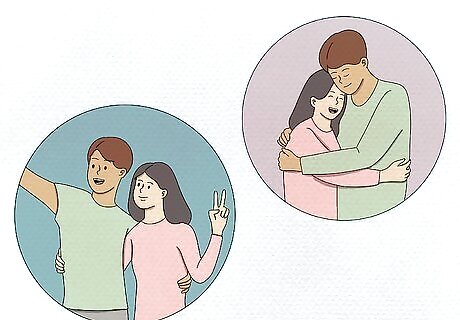
Have a conversation early on about whether or not to maintain a public or private relationship. If you and your partner have mutual friends, it may be important for the two of you to keep the relationship private. If you and your partner don’t have mutual acquaintances, it may not bother either one of you if others know about it. Discuss this aspect early on so you’ll know how to react should others ask questions.
Decide how to end things.

It is important to figure out in the beginning how and under what circumstances to end the casual relationship. Maybe you should end the relationship after a set period of time, or maybe you plan to end things if one of you meets someone else. Decide together how best to end things when the time comes. A quick phone call or a chat over a cup of coffee may be low-key options that reflect the casualness of the relationship.
Be respectful.
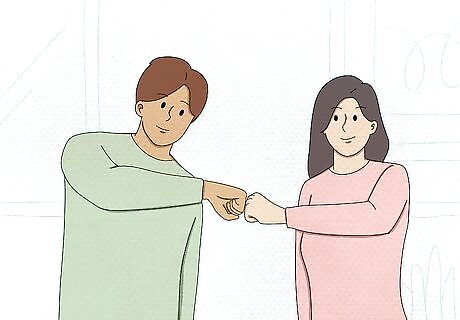
Being non-exclusive doesn't mean that you can be unfair or discourteous to your partner. You should both strive to be kind, thoughtful, and considerate when you spend time together and when communicating about activities. Do not intentionally ignore your partner or consistently break plans with them. Being mutually respectful of one another is not synonymous with a commitment.
Plan fun, friendly activities instead of dates.
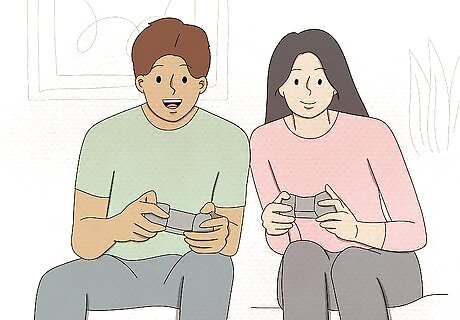
Go rock climbing, go to a concert, or play pub trivia with your partner. Planning fun, lively activities is a great way to enjoy one another’s company without worrying about possible romantic implications. Active dates are a great way to enjoy time with your partner, and the help keep any level of seriousness at bay. Try introducing the person to your friends and invite them to participate in activities with your friend-group, such as going to the movies or going bowling.
Avoid romance.
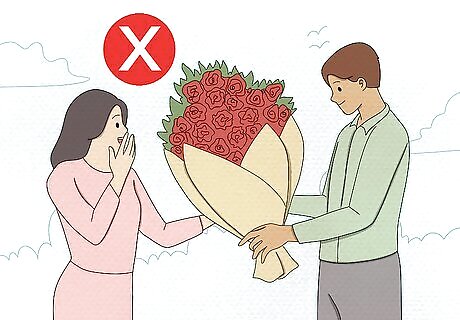
This is important for maintaining the boundaries of a causal relationship. Romantic getaways, candle-lit dinners, going to weddings, or celebrating anniversaries can, over time, promote feelings of affection and deep connection. To maintain the no-strings-attached policy, it is best to avoid situations that could encourage romantic feelings to grow. Discuss if there are any holidays or celebrations that the two of you are comfortable celebrating together, such as a birthday or a promotion at work. It may be that you agree to avoid all celebrations and personal milestones completely.
Keep conversations lighthearted.
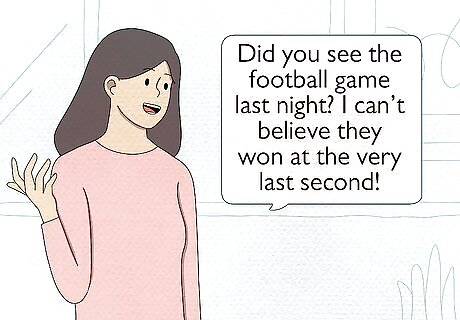
In a romantic relationship, it is typical for couples to tackle serious, difficult issues and topics. In a casual relationship, the obligation to sort through the heavy emotions isn’t there. You don’t necessarily need to omit sharing personal details and stories from conversations with your partner, but avoiding deep, personal conversations may help maintain the level of simplicity. Discuss with your partner about how you two should approach more serious conversations and situations. Conversations can be current and cheerful. Discuss books, movies, sports, current events—topics that are interesting but fun and don’t require a level of seriousness. “Did you see the football game last night? I can’t believe they won at the very last second!”
Set boundaries for physical intimacy.
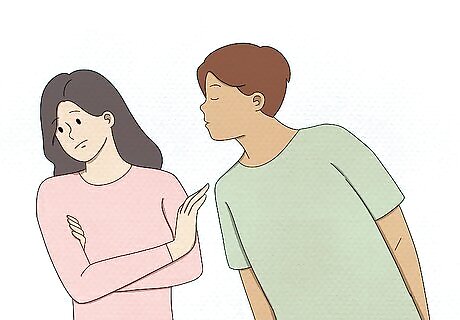
It is important to feel safe and comfortable with your partner at all times. Talk to your partner and be honest about how much physical intimacy you are comfortable with. Do not feel pressured to do anything you do not want to do, and respect your partner’s boundaries as well. Continue to communicate openly with your partner. EXPERT TIP Asa Don Brown, PhD, DNCCM, FAAETS Asa Don Brown, PhD, DNCCM, FAAETS Clinical Psychologist Dr. Asa Don Brown is a Clinical Psychologist with over 25 years of experience. He specializes in working with families, children, and couples, treating a variety of psychological disorders, trauma, and abuse. Dr. Brown has specialized in negotiation and profiling. He is also a prolific author having published three books and numerous articles in magazines, journals, and popular publications. Dr. Brown earned a BS in Theology and Religion with a minor in Marketing and an MS in Counseling with a specialization in Marriage and Family from The University of Great Falls. Furthermore, he received a PhD in Psychology with a specialization in Clinical Psychology from Capella University. He is also a candidate for a Masters of Liberal Arts through Harvard University. Dr. Brown is a Fellow of the American Academy of Experts in Traumatic Stress and a Diplomate for the National Center for Crisis Management and continues to serve a number of psychological and scientific boards. Asa Don Brown, PhD, DNCCM, FAAETS Asa Don Brown, PhD, DNCCM, FAAETS Clinical Psychologist To keep things casual, be upfront and real. Don't lead someone on if you just want friendship. Say what you mean. Show self-awareness and don't pretend to want more if you don't. Healthy relationships depend on people being honest about what you really want. Authentic intentions prevent misunderstandings down the road.
Keep track of your emotions.
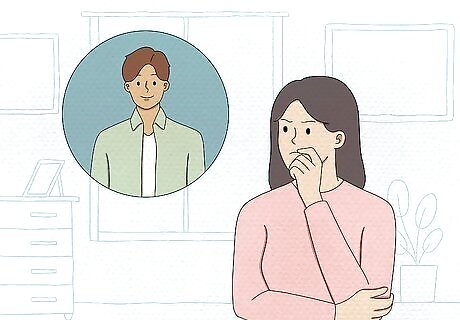
Although you wish to be in casual relationship, acknowledge that you may not always feel that way. Spending time with someone may spark romantic feelings no matter how often you tell yourself you do not want to be emotionally invested. Remember that this is okay. Make it a point to check in regularly with the other person and make sure that the current setup is still working for them. This conversation may easily be something you avoid for a long period of time because it's uncomfortable. Be honest with yourself, and notice if your feelings for your partner begin to grow into something more serious. Discuss this possibility with your partner at the beginning of the relationship. Acknowledge that you or your partner may develop romantic feelings, and agree on a method for handling this situation should it arise. Perhaps you will agree to end things without a discussion, or perhaps you will agree to have a conversation about it but will end things soon after. Decide what is most comfortable for you and your partner. Your partner may develop feelings for you that you do not share. If this happens, continue to be open and honest with your partner about your wants and needs. Do not give your partner false hope, but do let them down easily and respectfully.
Don’t disappear.
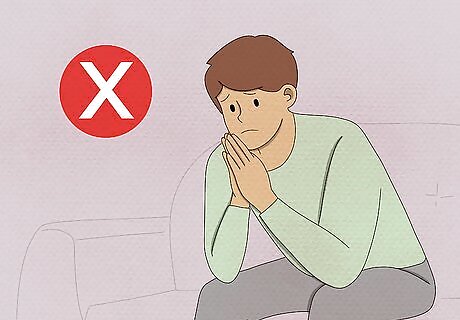
Never disappear and ignore your partner’s attempts to reach out. Ignoring text messages or emails can hurt your partner’s feelings. Be respectful and mindful of their emotions. Although there was an agreed-upon casualness to the relationship, it may insult your partner and damage their self-esteem.
Be sincere if your feelings change.
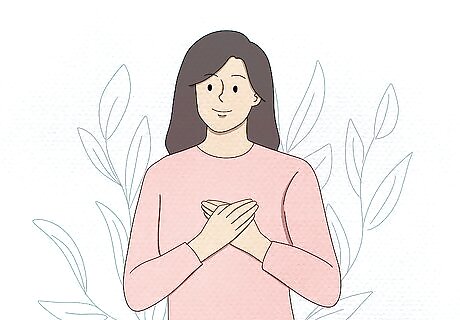
Stay on the same page with your partner. If you become too emotionally invested, if you meet someone new, or you are no longer interested in pursuing a casual relationship, talk to your partner. It is important to be honest; after all, the casual relationship was founded on open, honest, upfront communication. Don’t lie in an effort to spare their feelings, but do be kind and forthcoming.
Decide if the two of you should be friends.
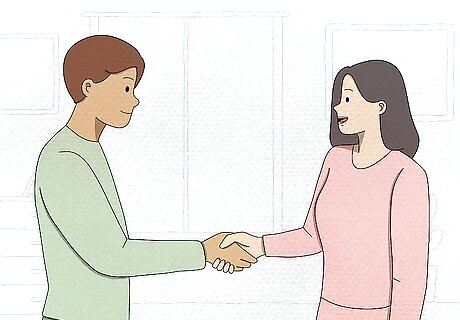
Perhaps you both agree for a clean break and agree to end all communication. Or, perhaps the two of you formed a great bond and wish to continue to keep in touch as friends. Recognize that the transition from a casual relationship to friendship can be complex and take time. Listen to your instincts and decide what would be best for you as you move away from the casual relationship. Be sure that you are really interested in maintaining a friendship. Ask yourself if you would mind seeing your partner with someone else. Consider if you or your partner ended things because romantic feelings got in the way. It may be too complicated to maintain a friendship as it can could cause romantic feelings to grow stronger. If you do decide to be friends, give yourself some time away from one another. Reach out when enough time has passed, and make plans to catch up in a public place.



















Comments
0 comment